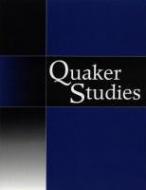
Abstract
This essay concerns the use of language in letters by Mary Fisher, the seventeenth-century Quaker missionary. It shows how she adapts her exegetical discourse to suit her readers, and uses it for more than selfjustification. Her first letter, written from York prison is shown to be influenced by the work of Elizabeth Hooton. It is also used as an example of a letter containing a complex and subtle biblical subtext. This technique gave these early Quaker women the confidence to write. Both Fisher and Hooton started writing to draw attention to injustice. Hooton continued to do this throughout her life; Fisher went on to use the same technique to express affectionate parental care for her converts. She continues to use biblically imitative language in order to write in a way acceptable to many readers in various situations. This is particularly useful when writing to Barbadian households where slaves and poor servants are kept. Fisher's letters show how an early modern serving woman adapted a particular linguistic technique to a variety of situations and readers. Her biblically imitative text justifies her public expression of faith and provides her with a rich and varied subtext. Hooton's example enables Fisher to express her concern for public justice. Fisher develops her skill to write about a spiritual liberty that transcends material confinement.
Recommended Citation
Stewart, Althea
(2014)
"Public Justice and Personal Liberty: Variety and Linguistic Skill in the Letters of Mary Fisher,"
Quaker Studies: Vol. 3:
Iss.
2, Article 3.
Available at:
https://digitalcommons.georgefox.edu/quakerstudies/vol3/iss2/3
